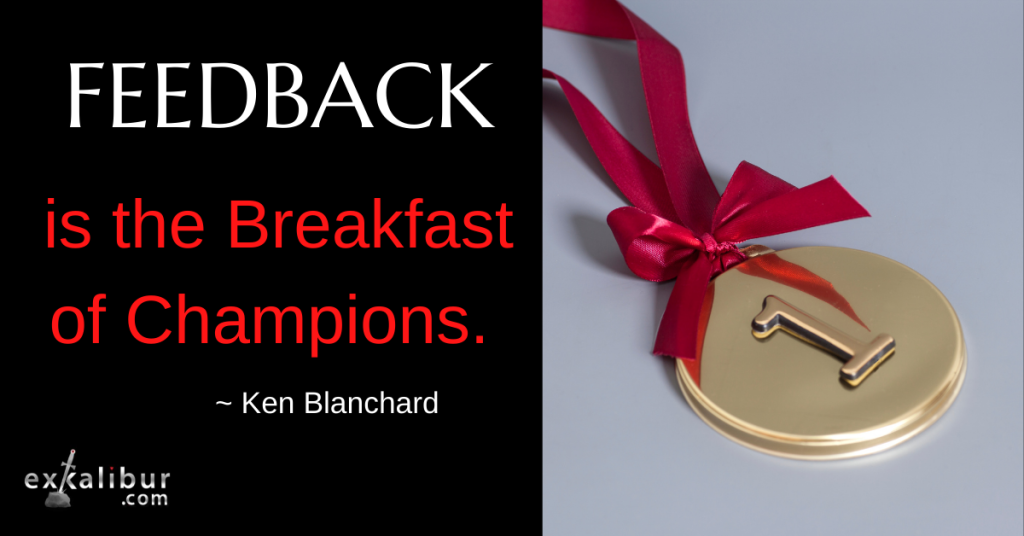I know that you know … and that I know you know … that providing feedback in a candid, thoughtful and direct manner … is something that many leaders avoid like the plague.
It’s not that you’re unwilling to give positive feedback or to applaud people’s performance or complement their success.
It’s that you know that’s not all of it.
You also need to point out the individual’s shortcomings, obstacles and challenges. Those issues are more difficult to share … and in direct proportion to how likely that individual is to fail.

Your Employees WANT Direct Feedback
What you may miss, however, is that most employees want direct feedback. They want to get better … they want to succeed … they want to grow and develop in their roles and advance in their careers.
They can take it if you can give it.
No, they might not be happy at that moment … but they will ultimately reflect upon it, find the truth in it and try to step up their game to overcome that challenge as you continue to support and encourage them.
Says Who?
You can find countless examples from CEOs and other leaders where they avow the critical importance of honest and direct feeback.
In an interview during her reign as CEO of Xerox, Anne Mulcahy, who previously ran human resources for Xerox worldwide, was asked this question:
Q. “What did you learn from running human resources?*
A. One was that you discover quickly how little honest feedback people get in companies, and how important it is for people to have a sense of candid assessment. It became very much a mantra for me, to kind of influence a culture that assessed people accurately and really dealt with people fairly.
One More Example
Likewise, John Donahoe, former CEO of Bain and eBay, was thrilled when he got a 20 page performance review from 40 partners, each of whom were interviewed for 30 minutes. Donahoe had an interesting take on his review:
“In many ways it was liberating, because I realized feedback’s a gift and I wasn’t afraid of the feedback. I’d look at it — and a third of it, I said: “You know, that’s exactly right. This is going to be a long-term area I’m going to have to get better and better at, and I want to make progress next year, and it will still be an issue that year.
It’s kind of a lifelong journey. About a third of it was: “Oh, wow, I didn’t realize I was doing that and need to stop doing it, or someone wanted me to be doing something else that I agreed with.” And then a third of it, I said: “You know what? Thanks for the feedback. I’m going to ignore it. I’m going to keep doing what I want to do.”
Be a Servant Leader
Andy Stanley in his book, Next Generation Leader, amplifies this quote from the legendary Ken Blanchard:
“I believe providing feedback is the most cost-effective strategy for improving performance and instilling satisfaction.”
The only way you’ll truly serve them and build high-performing teams … is if you are honest, forthright and authentic when you’re serving The Breakfast of Champions.


